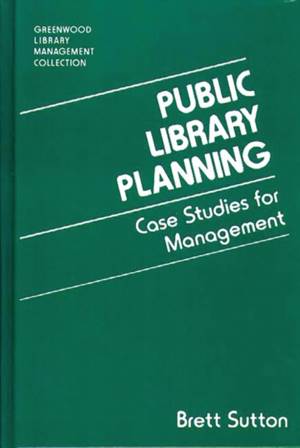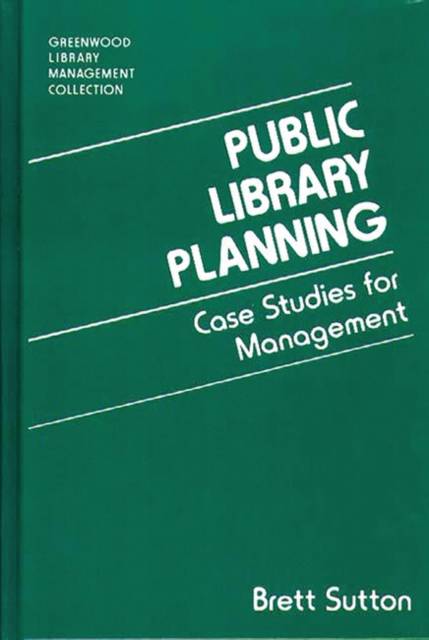
- Retrait gratuit dans votre magasin Club
- 7.000.000 titres dans notre catalogue
- Payer en toute sécurité
- Toujours un magasin près de chez vous
- Retrait gratuit dans votre magasin Club
- 7.000.0000 titres dans notre catalogue
- Payer en toute sécurité
- Toujours un magasin près de chez vous
Description
Public libraries must function in a time of limited funding, increasing technology, and shifting demographics and client needs. To fulfill their role, libraries must manage change through effective planning. This book analyzes case studies of planning at several representative libraries, illustrating how formal planning procedures are adapted to changing circumstances. The study is based primarily on interviews with staff members at each site, drawing wherever possible on their own words and on related documents and surveys.
The heart of the book is a set of narrative descriptions of the planning process at various representative libraries. Additional chapters draw on this material to evaluate the planning process and its organization, the planning documents produced, the social aspects of planning, and the benefits of the process. The volume looks at how planning evolved at each site, the kinds of problems encountered and how they were solved, and the effects of planning on the organization. The book emphasizes the complexity of planning, the variety of perspectives held by staff members, and the relationship between planning and the library's local environment.Spécifications
Parties prenantes
- Auteur(s) :
- Editeur:
Contenu
- Nombre de pages :
- 328
- Langue:
- Anglais
- Collection :
Caractéristiques
- EAN:
- 9780313287763
- Date de parution :
- 23-05-95
- Format:
- Livre relié
- Format numérique:
- Genaaid
- Dimensions :
- 163 mm x 241 mm
- Poids :
- 748 g

Les avis
Nous publions uniquement les avis qui respectent les conditions requises. Consultez nos conditions pour les avis.






